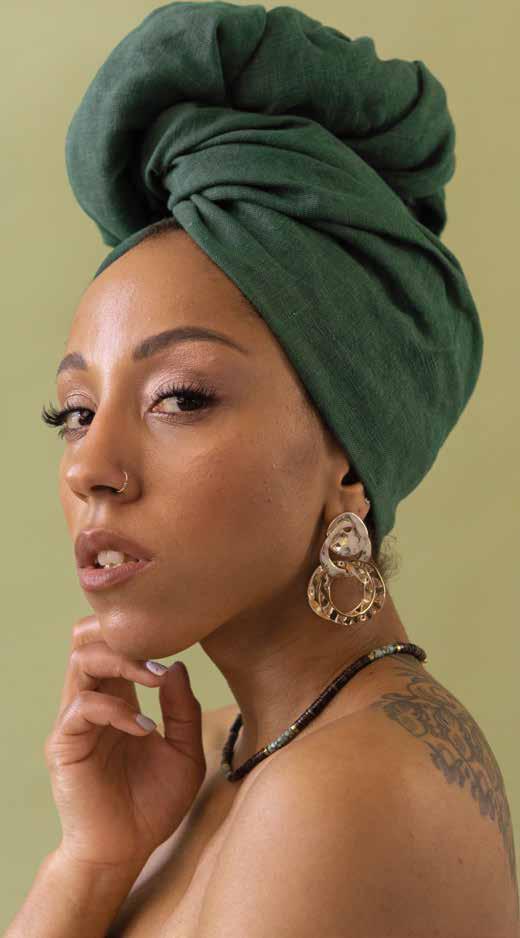
A TOUGH INDUSTRY
If I were to ask you to picture the average runway model, what would I you see? If you're anything like me, odds are it's a young woman. She's white and she's a size 2. Now picture the designer who made the gorgeous dress she's wearing: What do they look like? If they turned out to be white, too I don't blame you.
I can't because you're most likely right. The fashion industry, in all its glory, is still painfully monochromatic. Even in the best rooms to be in - backstage at London or Paris Fashion Week, for example - black creators and models stand out from the crowd.
We're the minority, we're often tokenised, and our work is often plagiarised. Often, we only seem to be there to tick a box. And it's these truths that we're forced to sit with as we hold our tongues and try to be thankful.
Now this is not to say that fashion is a racist, bigoted industry, and that any POC with runway dreams should drop them and take up accounting.
But, what is true is that as a POC, fashion is that much harder of an industry to crack.
I mean, think about it: How many POC models or designers can you name off the top of your head? To make the question even tougher, how many of those designers' names are attached to houses that have existed for more than 20 years? And what does that mean when we acknowledge that fashion looks to the whole world, to all races and creeds, for inspiration? Well, it means we have to be aware of the problem that is cultural appropriation.
THE 'WHAT' AND 'WHY'
この記事は ClubX の July 2022 版に掲載されています。
7 日間の Magzter GOLD 無料トライアルを開始して、何千もの厳選されたプレミアム ストーリー、9,000 以上の雑誌や新聞にアクセスしてください。
すでに購読者です ? サインイン
この記事は ClubX の July 2022 版に掲載されています。
7 日間の Magzter GOLD 無料トライアルを開始して、何千もの厳選されたプレミアム ストーリー、9,000 以上の雑誌や新聞にアクセスしてください。
すでに購読者です? サインイン

DQ GOOD dress better
Sustainable fashion fundi Alexa Schempers of Rethread Store is all about finding innovative ways to reduce waste across the local fashion landscape

The Perfect shot
Photography is a challenging profession for many reasons, but for this passionate visual storyteller, it's more than just a career - it's a calling

Dress to attract
How you dress says so much about you. Why not use it to find your sweetheart?

SUSTAINABLE FASHION: a Myh?
Affordable fashion that is also ecofriendly is a work in progress

Follow the HEART
Fuata Moyo, owned by four stylish siblings, is fusing fashion and art to produce one-of-a-kind, personality-filled creations

HATS OFF PHA-real!
He's not just one of the G.0.A.Ts of music Pharrell Williams is a fashion legend too

Colour POP
Do you believe in the persuasive power of colour psychology?

Fashionable food
People don't just want to indulge in food - they want to be dressed in it. We look at the most adored food-themed fashion trends

DEVOTED to design
A showcase of emerging local fashion labels and designers to keep an eye on

Call Me MONTERO
A master of the show-stopping entrance, Lil Nas X has the moxie to prove that fashion can help your personality sing